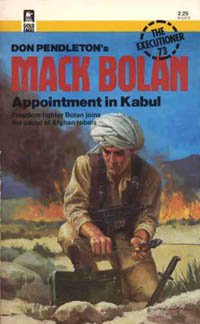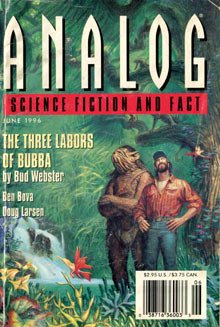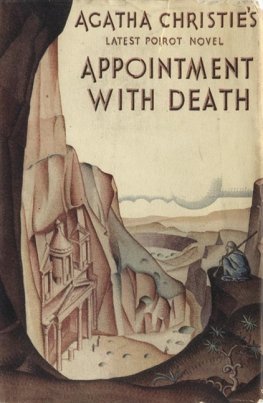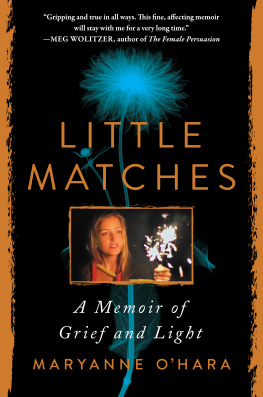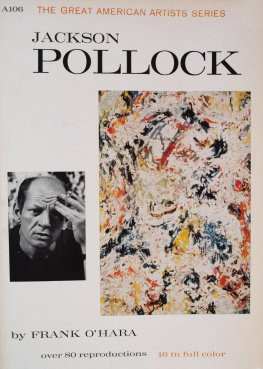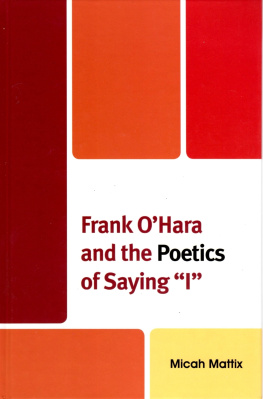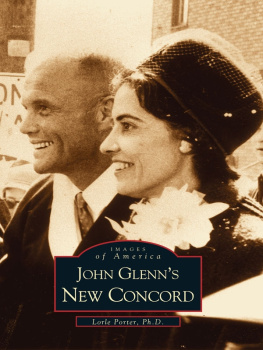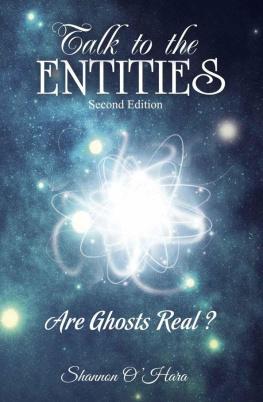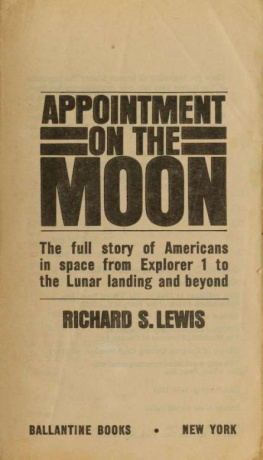John OHara - Appointment in Samarra
Here you can read online John OHara - Appointment in Samarra full text of the book (entire story) in english for free. Download pdf and epub, get meaning, cover and reviews about this ebook. year: 1934, genre: Detective and thriller. Description of the work, (preface) as well as reviews are available. Best literature library LitArk.com created for fans of good reading and offers a wide selection of genres:
Romance novel
Science fiction
Adventure
Detective
Science
History
Home and family
Prose
Art
Politics
Computer
Non-fiction
Religion
Business
Children
Humor
Choose a favorite category and find really read worthwhile books. Enjoy immersion in the world of imagination, feel the emotions of the characters or learn something new for yourself, make an fascinating discovery.

- Book:Appointment in Samarra
- Author:
- Genre:
- Year:1934
- Rating:3 / 5
- Favourites:Add to favourites
- Your mark:
- 60
- 1
- 2
- 3
- 4
- 5
Appointment in Samarra: summary, description and annotation
We offer to read an annotation, description, summary or preface (depends on what the author of the book "Appointment in Samarra" wrote himself). If you haven't found the necessary information about the book — write in the comments, we will try to find it.
Appointment in Samarra — read online for free the complete book (whole text) full work
Below is the text of the book, divided by pages. System saving the place of the last page read, allows you to conveniently read the book "Appointment in Samarra" online for free, without having to search again every time where you left off. Put a bookmark, and you can go to the page where you finished reading at any time.
Font size:
Interval:
Bookmark:
APPOINTMENT IN SAMARRA JOHN O'HARA With an Afterword by Arthur Mizener A SIGNET CLASSIC Published by The New American Library Copyright, 1934, by John OHara JOHN OHARA was born in Pottsville, Pennsylvania, in 1905, the son of a respected local physician. After graduating from Niagara Preparatory School, he passed his college entrance examinations, but his fathers death required that he go to work. After a variety of jobs in Pennsylvania and then in New York, Mr. OHara published Appointment in Samarra, his first novel, in 1934; this book was clear indication of his penetrating knowledge of American society and the direct factual style that characterizes his work. Though he has spent time in Hollywood and successfully ventured onto Broadway in 1940 to write the book for the musical adaptation of his story Pal Joey, OHaras literary production has continued unabated over the years. His novels include Butterfield 8 (1935), A Rage to Live (1949), the National Book Award winner Ten North Frederick (1955), From the Terrace (1958), and The Big Laugh (1962). His short-story collections include The Doctors Son and Other Stories (1935), Assembly (1960), and The Cape Cod Lighter (1962). At present, Mr. OHara lives near Princeton, New Jersey, where he continues to write.
DEATH SPEAKS: There was a merchant in Bagdad who sent his servant to market to buy provisions and in a little while the servant came back, white and, trembling, and said, Master, just now when I was in the market-place I was jostled by a woman in the crowd and when I turned I saw it was Death that jostled me. She looked at me and made a threatening gesture; now, lend me your horse, and I will ride away from this city and avoid my fate. I will go to Samarra and there Death will not find me. The merchant lent him his horse, and the servant mounted it, and he dug his spurs in its flanks and as fast as the horse could gallop he went. Then the merchant went down to the market-place and he saw me standing in the crowd and he came to me and said, Why did you make a threatening gesture to my servant when you saw him this morning? That was not a threatening gesture, I said, it was only a start of surprise. I was astonished to see him in Bagdad, for I had an appointment with him tonight in Samarra. W. Somerset Maugham
To F.P.A.
CHAPTER 1
OUR STORY opens in the mind of Luther L. (L for LeRoy) Fliegler, who is lying in his bed, not thinking of anything, but just aware of sounds, conscious of his own breathing, and sensitive to his own heartbeats. Lying beside him is his wife, lying on her right side and enjoying her sleep. She has earned her sleep, for it is Christmas morning, strictly speaking, and all the day before she has worked like a dog, cleaning the turkey and baking things, and, until a few hours ago, trimming the tree. The awful proximity of his heartbeats makes Luther Fliegler begin to want his wife a little, but Irma can say no when she is tired. It is too much trouble, she says when she is tired, and she wont take any chances. Three children is enough; three children in ten years. So Luther Fliegler does not reach out for her. It is Christmas morning, and he will do her the favor of letting her enjoy her sleep; a favor which she will never know he did for her. And it is a favor, all right, because Irma likes Christmas too, and on this one morning she might not mind the trouble, might be willing to take a chance. Luther Fliegler more actively stifled the little temptation and thought the hell with it, and then turned and put his hands around his wifes waist and caressed the little rubber tire of flesh across her diaphragm. She began to stir and then she opened her eyes and said: My God, Lute, what are you doing?
Merry Christmas, he said.
Dont, will you please? she said, but she smiled happily and put her arms around his big back. God. youre crazy, she said. Oh, but I love you. And for a little while Gibbsville knew no happier people than Luther Fliegler and his wife, Irma. Then Luther went to sleep, and Irma got up and then came back to the bedroom, stopping to look out the window before she got into bed again.
Lantenengo Street had a sort of cottony silence to it. The snow was piled high in the gutters, and the street was open only to the width of two cars. It was too dark for the street to look cottony, and there was an illusion even about the silence. Irma thought she could yell her loudest and not be heard, so puffily silent did it look, but she also knew that if she wanted to (which she didnt) she could carry on a conversation with Mrs. Bromberg across the way, without either of them raising her voice. Irma chided herself for thinking this way about Mrs. Bromberg on Christmas morning, but immediately she defended herself: Jews do not observe Christmas, except to make more money out of Christians, so you do not have to treat Jews any different on Christmas than on any other day of the year. Besides, having the Brombergs on Lantenengo Street hurt real estate values. Everybody said so. The Brombergs, Lute had it on good authority, had paid thirty thousand for the Price property, which was twelve thousand five hundred more than Will Price had been asking; but if the Brombergs wanted to live on Lantenengo Street, they could pay for it. Irma wondered if it was true that Sylvia Brombergs sister and brother-in-law were dickering for the McAdams property next door. She wouldnt be surprised. Pretty soon there would be a whole colony of Jews in the neighborhood, and the Fliegler children and all the other nice children in the neighborhood would grow up with Jewish accents.
Irma Fliegler had hated Sylvia Bromberg since the summer before, when Sylvia was having a baby and screamed all through a summer evening. She could have gone to the Catholic hospital; she knew she was having a baby, and it was awful to have those screams and have to make up stories to tell the nice children why Mrs. Bromberg was screaming. It was disgusting.
Irma turned away from the window and went back to bed, praying that she would not get caught, and hating the Brombergs for moving into the neighborhood. Lute was sleeping peacefully and Irma was glad of the warmth of his big body and the heavy smell of him. She reached over and rubbed her fingers across his shoulder, where there were four navel-like scars, shrapnel scars. Lute belonged on Lantenengo Street, and she as his wife belonged on Lantenengo Street. And not only as his wife. Her family had been in Gibbsville a lot longer than the great majority of the people who lived on Lantenengo Street. She was a Doane, and Grandfather Doane had been a drummer boy in the Mexican War and had a Congressional Medal of Honor from the Civil War. Grandfather Doane had been a member of the School Board for close to thirty years, before he died, and he was the only man in this part of the State who had the Congressional Medal of Honor. Lute had the French Croix de Guerre with palm for something be said he did when he was drunk, and there were a couple of men who got Distinguished Service Crosses and Distinguished Service Medals during the War, but Grandfather Doane had the only Congressional Medal of Honor. Irma still thought she was entitled to the medal, because she had been Grandfather Doanes favorite; everyone knew that. But her brother Willard and his wife, they got it because Willard was carrying on the name. Well, they could have it. It was Christmas, and Irma did not begrudge it to them as long as they took care of it and appreciated it.
Irma lay there, fully awake, and heard a sound: cack, thock, cack, thock, cack, thock. A car with a loose cross-chain banging against the fender, coming slowly up or down Lantenengo Street, she could not make out which. Then it came a little faster and the sound changed to cack, cack, cack, cack-cack-cack-cack. It passed her house and she could tell it was an open car, because she heard the flapping of the side curtains. It probably was a company car, a Dodge. Probably an accident at one of the mines and one of the bosses was being called out in the middle of the night, the night before Christmas, to take charge of the accident. Awful. She was glad Lute did not work for the Coal & Iron Company. You had to be a college graduate, Penn State or Lehigh, which Lute was not, to get any kind of a decent job with the Coal & Iron, and when
Next pageFont size:
Interval:
Bookmark:
Similar books «Appointment in Samarra»
Look at similar books to Appointment in Samarra. We have selected literature similar in name and meaning in the hope of providing readers with more options to find new, interesting, not yet read works.
Discussion, reviews of the book Appointment in Samarra and just readers' own opinions. Leave your comments, write what you think about the work, its meaning or the main characters. Specify what exactly you liked and what you didn't like, and why you think so.

